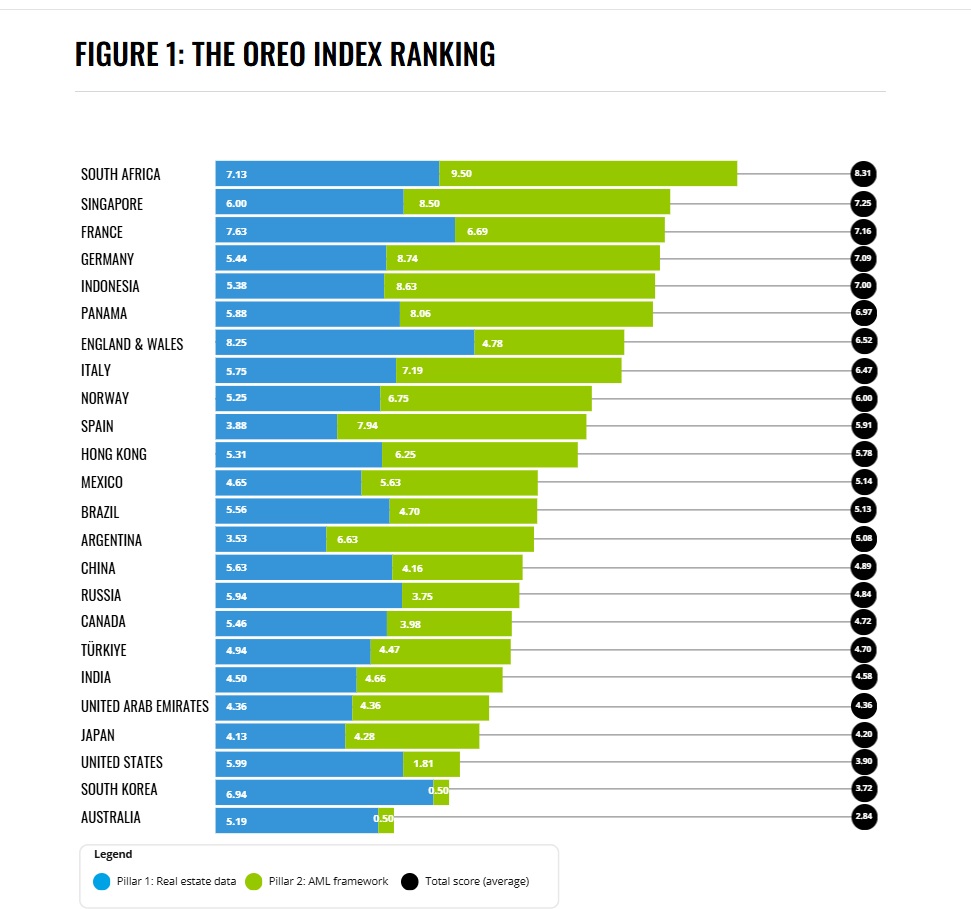Australia delayed implementing global anti-money laundering rules for nearly two decades.
In March, the Anti-Corruption Data Collective (ACDC) and Transparency International released the inaugural Opacity in Real Estate Ownership (OREO) Index, which ranked Australia last in the world.

The index ranked major developed nations on two key criteria: 1) the scope and accessibility of real estate ownership data, and 2) the strength of domestic anti-money laundering frameworks governing property transactions.
“Crooks, corrupt officials and professional enablers with scant regard for the law are able to exploit yawning gaps in real-estate regulation across many of the world’s major economies, allowing them to launder illicit funds through property purchases with minimal risk of detection”, Transparency International announced.
“Real estate remains a favoured vehicle for money laundering owing to widespread legal loopholes, a lack of transparency and, in some cases, woefully poor oversight”.
To its credit, the Albanese government has legislated “Tranche 2” anti-money laundering (AML) rules for real estate gatekeepers, which are set to come into effect in mid-2026.
These global Tranche 2 AML rules were first announced by the former Howard Coalition government in 2006. Labor, with the support of the Greens, successfully passed the legislation in December 2024, despite continuous delays.
However, the AML rules appear to have been watered down somewhat, with real estate agents not required to stop a transaction if a client refuses to hand over the detailed information:
The reforms requiring an estimated 90,000 extra businesses across sectors – including real estate – to fulfil know-your-customer obligations akin to those of banks, will not require them to abort a deal if that information is not available, Real Estate Institute of Australia president Leanne Pilkington said…
“If somebody is buying a property from me and I go to do all these checks, if they say, ‘I’m not prepared to give that,’ it doesn’t mean I can’t transact. It means I need to file a suspicious matter report”, she said…
Daniel Mossop, AUSTRAC’s national manager for policy rules and guidance, said that the reforms do not create a loophole, given that real estate companies have to show they have taken all possible steps to exercise due diligence and find the individual at the end of a deal.
“Have they taken the steps that their own program sets out to manage the risk, and if that’s done, and have they done any reporting that they need to do based on the transaction in front of them? If that has happened, then that’s fine”, he said.
No regulation is ever perfect. And the Tranche 2 AML rules have struck a reasonable balance between compliance and regulatory burden.
I am just relieved that after nearly 20 years of intransigence, Australia is finally taking property money laundering seriously.

